Herodotus, the Father of History or Blogging?
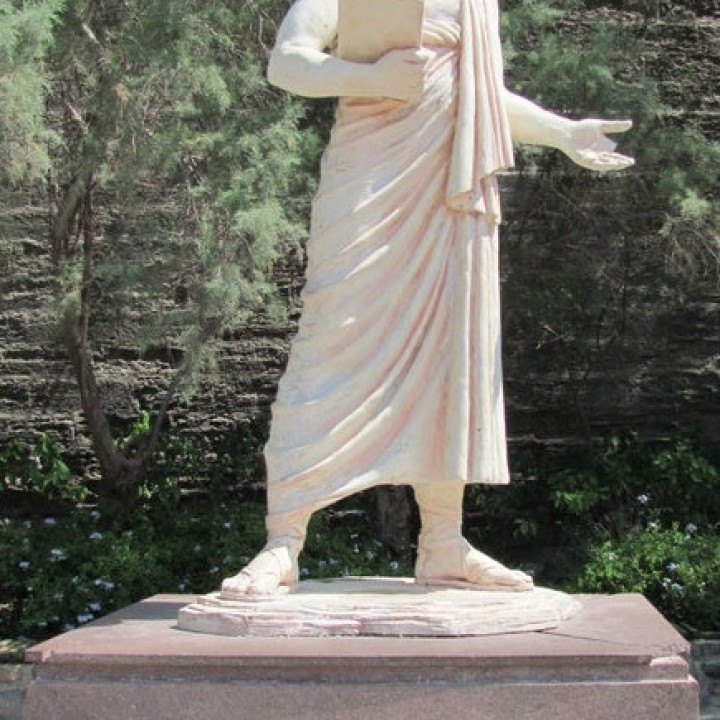
Herodotus, The Father of History or Blogging?
Herodotus was a Greek historian that has been acknowledged as the Father of History ever since antiquity. Of course, the title does not reflect accurately the state of historical studies at the time, since other similar historians preceded him. The fact is the Herodotus was the first write to use prose in order to describe lengthy events; The Greek-Persian Wars.
He was born in Halicarnassus, modern Bodrum in Turkey, in the early 5th century BC. The city was known for its participation in constant fights against the Persians, who eventually invaded also mainland Greece. Herodotus probably spent many evenings listening to the stories of the people who participated in these wars.
When he visited Athens he probably got more food for thought, as he most likely met the famous tragoedians, Aeschylus and Sophocles, while he must have been acquainted to powerful political figures, such as Pericles. As he seemed to have been enamoured with traveling, he ended up in the Athenian colony of Thurii in Southern Italy, where he died at some point after 430 BC.
Even though scholars used to consider Thucydides a more ‘serious’ historian, Herodotus was the one who distinguished between myths and historical facts. He tried to find the truth behind the narratives of eye witnesses and he was very careful to use oral history. Above all, his works were not commissioned by any contemporary political figures but they probably reflect his own views of the past.
As I already mentioned in the beginning, he was especially interested in the prolonged conflict between the Greeks and the Persians. Of course, he blatantly took the side of the Greeks, a fact that affected the way we look at the conflict. Only in the past few decades have more information surfaced from the Near East that shed light on the Persian side. So, we no longer believe in the superiority of the Greeks in terms of moral values and love of freedom.
One of the most important inscriptions that surfaced from Persia is the so called Behistun or Bisitun stone. On that stone King Dareius of Persia carved the military achievements of his predecessors. It adds significant information to the narrative Herodotus provided. Despite its usefulness in filling up the gaps, we should bear in mind that Dareius had an ulterior motive; with this inscription he was attempting to legitimise his own rule and thus presented his predecessors in an exceptionally favourable light.
We do not know the material on which Herodotus wrote. We assume that he used scrolls of Egyptian papyri. Initially, they would not have been published but they may have been read in front of an audience. In that, we may compare his work with modern blogs that are written with few revisions and they are delivered in front of an interested audience. His work was published much later, after his audience seemed to like his Histories. In that sense, shall we give him the title ‘Father of Blogging’? I know the idea is stretched but the similarities in the way he wrote his works and disseminated them remain.
For those who are interested in the Behistun Inscription, I attach here a small passage and a link to find the rest.
“(9) Darios the King says: Ahura Mazda bestowed this kingdom upon me. Ahura Mazda brought me aid until I had held together this kingdom. By the favour of Ahura Mazda I hold this kingship.
(10) Kambyses had a brother, Bardiya by name, of the same mother and the same father as Cambyses. Afterwards Cambyses slew Bardiya. When Cambyses had slain Bardiya, it did not become known to the people that Bardiya had been slain. Afterwards Kambyses went to Egypt. When Kambyses had set out for Egypt, the people became disloyal. The Lie grew greatly in the land, in Persia, Media, and the other countries.
(11) Darios the King says: ‘Afterwards there was one man, a Magus, Gaumata by name… He lied to the people thus ‘I am Bardiya the son of Cyrus, the brother of Kambyses’. Afterwards all people rebelled against Kambyses and went over to him, both Persia and Media and the other countries. He seized the kingship… Afterwards Kambyses died his own death.
(12) Darios the King says. ‘The kingship which Gaugata the Magus had seized from Kambyses, had from ancient times belonged to our family… He became king.
(13) Darios the King says: ‘There was no man, neither a Persian nor a Mede nor anyone of our family, who might have taken the kingship from that Gaumata the Magus. The people feared him greatly, since he used to slay in great number the people who previously had known Bardiya… Afterwards I prayed to Ahura Mazda. Ahura Mazda brought me aid. In the month Bagayadis, ten days had passed (29 September 522), then I with a few men slew Gaumata the Magus and the men who were his foremost followers… I took the kingship from him. By the favour of Ahura Mazda I became king. Ahura Mazda bestowed the kingship upon me.
(The inscription translated by Maria Brosius in Asheri, D., Lloyd, A., Corcella, A. et al. (2007), A Commentary on Herodotus, Books I-IV, Oxford, pp. 529-537).
Online Book. Brosius, M. (2006), The Persians, London.

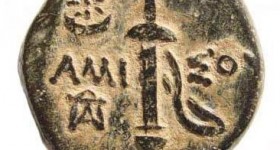
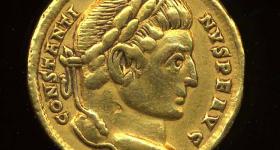
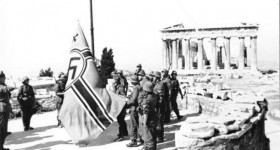

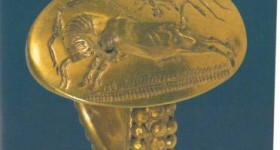
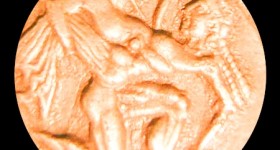

Having brought myself up reading,yes,actually reading,Thucydides (Peloponnesian War) and being of an age believing Herodotus to be ‘imaginative’ with facts I find your analogy with blogging to be very apt.Both historians provide valuable information on their topics but,deep down,I know I trust Thucydides.